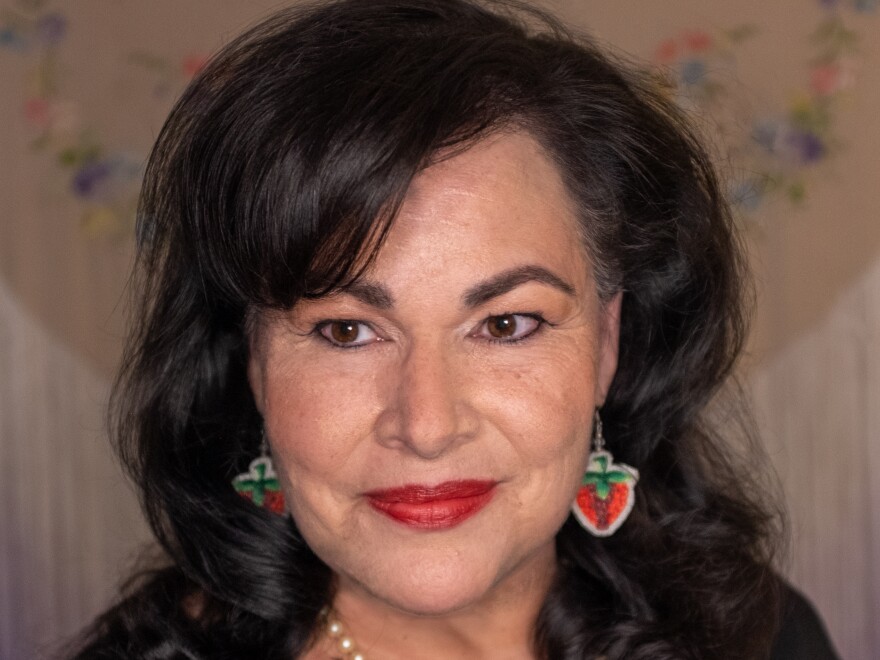Author Angeline Boulley’s first novel, Firekeeper’s Daughter, was a book decades in the making. The seed of the novel, which features an Ojibwe teen girl going undercover for the FBI to solve a murder in her tribal community, first came to Boulley when she herself was still in high school. The book, which she describes as “Indigenous Nancy Drew meets 21 Jump Street” was published in 2021 to much acclaim. Boulley was 55-years-old.
Now, just two years later, the groundbreaking YA author is back with her sophomore novel. And this time around, the timeline was quite a bit shorter.

“I had one year to write Warrior Girl Unearthed and that really was daunting,” Boulley told Stateside. “But I built myself up saying I have many more tools in my tool belt this time around. And so, I certainly felt like I was starting out as a stronger writer than I was with the first book. But yeah, [with] the crunched timeline, I had to become much more of a person that plots the story rather than flying by the seat of my pants and finding the story along the way.”
The new book, which came out on May 2, is set in the same fictionalized version of the writer’s own Ojibwe tribal community. Boulley is an enrolled member of the Sault Ste. Marie Tribe of Chippewa Indians. And like Boulley’s debut novel, Warrior Girl Unearthed is a YA book whose appeal reaches beyond teen readers. And there are plenty of Easter eggs for readers of Boulley’s first novel. The protagonist of Firekeeper’s Daughter – Daunis Fontaine – even makes an appearance.
“The idea of having my second novel continue with Daunis as the main character– that actually felt more exhausting than exciting to me. I really felt like where we left Daunis at the end of Firekeeper’s Daughter was in a pretty good place, and I felt she would be much more interesting as a secondary character seen through the eyes of someone else.”
That someone else is Perry Firekeeper-Birch. She’s 16 years old and has a twin sister named Pauline. Pauline is the brainy one, a high-achiever who’s got all the anxiety to match. Perry is far more laid back, and all she wants is to chill out for the summer before she has to get serious about college. But fate has different plans, and she is soon caught up in a complex web of murder and theft, politics, and culture.
The book is marketed toward young adult readers, but it doesn’t shy away from tough topics. The reader and Perry learn together about the long-standing practice of people looting objects and human remains from Native American grave sites around the continent. That’s despite more than three decades of federal law that bans the practice of trading Native American ancestral remains and cultural artifacts – and facilitates their return to descendants. Boulley said she hopes that her novel inspires the same outrage in the reader that she feels when she thinks about how the ancestral remains of Native Americans have been treated.
“When we talk about repatriation, it can be this academic subject. But when you are in a room and, you know, realizing that bones of our ancestors are in paper bags, sometimes cardboard boxes, stored on shelves in museum archives, and you think this is not this is not where our ancestors wanted their their bodies to be,” she explained. “They never imagined that their bodies would be dug up and used for research or as the spoils of grave robbers.”
The publishing industry has not always been welcoming to diverse voices, and there remains plenty of criticism about how writers of color are treated by publishers. But Boulley said she hopes her work shows young Indigenous writers, as well as literary agents and publishers, that stories by and about Indigenous people can also be commercial successes. Firekeeper’s Daughter is a great example of that. It became a New York Times bestseller, and was optioned for Netflix by Barack and Michelle Obama’s production company Higher Ground.
“I think people, readers, have always been interested in stories about Native Americans. It's just that for so long we were not the ones getting the book deals. You know, it was non-Native people who were writing stories about us,” Boulley reflected. “And so I'm really glad to be part of this wave, overdue wave, of Native writers writing from lived experience and showing the diversity between and within our own tribal communities.”
This episode originally aired on May 3, 2023.
[Get Stateside on your phone: subscribe on Apple Podcasts, Google Podcasts, or Spotify today.]
___
Looking for more conversations from Stateside? Right this way.
If you like what you hear on the pod, consider supporting our work.









